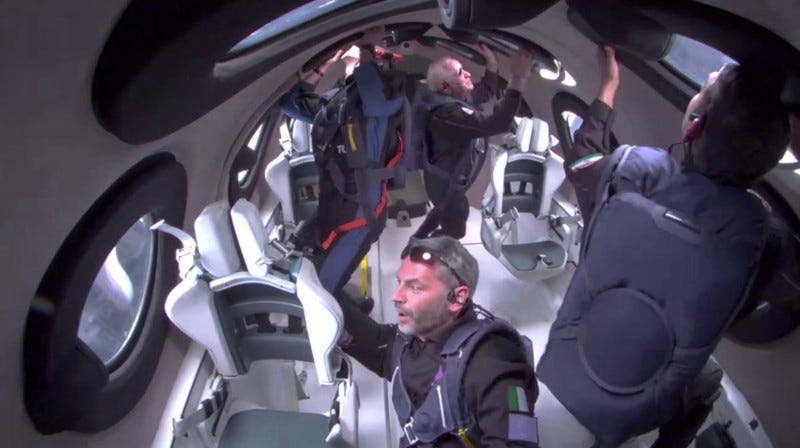VSS Unity Makes Final Commercial Flight
'Galactic 07' Carries Five Research Payloads During Virgin Galactic’s Seventh Research Mission
Galactic 07, the 7th research flight to be conducted by Virgin Galactic and the 12th flight overall, took place Saturday with one researcher and three private astronauts on board. The flight took off from Spaceport America at 8:31 am MT, and Unity was released at an altitude of 44,562 feet. The spacecraft reached an apogee of 54.4 miles, landing an hou…




